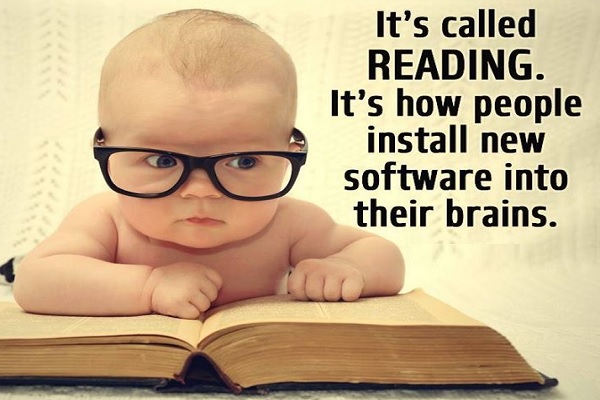
ಶಿವಮೊಗ್ಗದ ಮಾನಸ ಟ್ರಸ್ಟ್ನ ಕಟೀಲ್ ಅಶೋಕ್ ಪೈ ಸ್ಮಾರಕ ಕಾಲೇಜಿನ ಗ್ರಂಥಾಲಯಕ್ಕೆ ‘ಮನೋಲೋಕ’ ಎಂಬ ಹೆಸರನ್ನು ಜನವರಿ ೩೦ ರಂದು ಅನಾವರಣಗೊಳಿಸಿದ ಕುವೆಂಪು ವಿಶ್ವವಿದ್ಯಾಲಯದ ಲೈಬ್ರರಿ ಸೈನ್ಸ್ ವಿಭಾಗದ ಪ್ರಾಧ್ಯಾಪಕರಾದ ಡಾ ಸಂತೋಷ್ ಕುಮಾರ್ರವರು ಮಾತನಾಡುತ್ತಾ ಗ್ರಂಥಾಲಯಗಳು ಬೆಳೆದು ಬಂದ ದಾರಿಯನ್ನು ವಿವರಿಸಿದರು. ಪುಸ್ತಕಗಳನ್ನು ಸರಪಳಿಗಳಿಂದ ಭದ್ರ ಪಡಿಸಿ ಕಳುವಾಗದಂತೆ ನೋಡಿಕೊಳ್ಳುತ್ತಿದ್ದ ಉಲ್ಲೇಖಗಳಿವೆ ಎಂದು ಹೇಳುತ್ತಾ ಮಾಹಿತಿ ಹಾಗೂ ಜ್ಞಾನದ ಮುದ್ರಣವು ಒಂದು ಕ್ರಾಂತಿಯನ್ನೇ ಈ ಜಗತ್ತಿನಲ್ಲಿ ಮಾಡಿದೆ ಎಂದು ಹೇಳಿದರು. ಇಂದು ಗ್ರಂಥಾಲಯಗಳು ಪುಸ್ತಕಗಳನ್ನಷ್ಟೇ ಹೊಂದಿಲ್ಲ. ಸಾಕಷ್ಟು ಡಿಜಿಟಲ್ ಸಂಪನ್ಮೂಲಗಳನ್ನು ಕೂಡಾ ಹೊಂದಿವೆ. ಕಟೀಲ್ ಅಶೋಕ್ ಪೈ ಸ್ಮಾರಕ ಕಾಲೇಜಿನ ಗ್ರಂಥಾಲಯದಲ್ಲಿ ಡಿಜಿಟಲ್ ಲೈಬ್ರರಿಯನ್ನು ಪ್ರಾರಂಭಿಸಿರುವುದು ವಿದ್ಯಾರ್ಥಿಗಳಿಗೆ ವಿಫುಲ ಅವಕಾಶಗಳನ್ನು ಒದಗಿಸಿಲಿದೆ. ಇಂದು ಡಿಜಿಟಲ್ ಮಾಧ್ಯಮದ ಮೂಲಕ ವಿದ್ಯಾರ್ಥಿಗಳು ಹಲವಾರು ಕೋರ್ಸ್ಗಳನ್ನು ಮಾಡಬಹುದು. ದೇಶದ ಪ್ರತಿಷ್ಠಿತ ಯುನಿವರ್ಸಿಟಿಗಳು ಅತ್ಯುತ್ತಮ ಕೋರ್ಸ್ಗಳನ್ನು ನಡೆಸುತ್ತಿವೆ. ಇಂದು SWAYAM ಮೂಲಕ ದೊರೆಯುವ ಕೋರ್ಸ್ಗಳಿಗೆ ದಾಖಲಾದಲ್ಲಿ ಆ ವಿಷಯದಲ್ಲಿ ವಿಡಿಯೋ ಪಾಠ, ಪಠ್ಯಗಳು ಹಾಗೂ ಆಡಿಯೋ ಪಾಠವನ್ನು ಒದಗಿಸುತ್ತವೆ. ತಾನು ಓದುತ್ತಿರುವ ಪದವಿಯೊಂದಿಗೆ ಇನ್ನು ಹಲವು ಸರ್ಟಿಫಿಕೇಟ್ ಕೋರ್ಸ್ಗಳನ್ನು ಮಾಡಬಲ್ಲ ಅವಕಾಶ ವಿದ್ಯಾರ್ಥಿಗಳಿಗಿದೆ. ಅದಲ್ಲದೆ ಶೋಧಗಂಗಾ, ಶೋಧಗಂಗೋತ್ರಿಯAತಹ ಹಲವು ಪೋರ್ಟಲ್ಗಳು ಹಲವಾರು ಸಂಶೋಧಣಾ ಲೇಖನಗಳನ್ನು, ಪ್ರಕಟಪಡಿಸುತ್ತವೆ. ಇವುಗಳೆಲ್ಲ ಸಂಶೋಧನಾ ಆಸಕ್ತಿಯುಳ್ಳ ವಿದ್ಯಾರ್ಥಿಗಳಿಗೆ ಒಂದು ಬಹಳ ಮುಖ್ಯವಾದ ಆಕರಗಳಾಗಿವೆ ಎಂದು ತಿಳಿಸಿದರು. ವಿದ್ಯಾರ್ಥಿಗಳು ಇಂದಿನ ಈ ಡಿಜಿಟಲ್ ಯುಗದಲ್ಲಿ ಡಿಜಿಟಲ್ ಮಾಧ್ಯಮದ ಬಳಕೆ ಬಗ್ಗೆ ತಿಳಿದುಕೊಳ್ಳುವುದರೊಂದಿಗೆ, ಏನು ಮಾಡಬಾರದು ಎಂದು ತಿಳಿದುಕೊಳ್ಳುವುದು ಮುಖ್ಯ. ಕೃತಿಚೌರ್ಯಕ್ಕೆ ಎಷ್ಟು ಅವಕಾಶಗಳಿವೆಯೋ, ಅಷ್ಟೇ, ಅದನ್ನು ಗುರುತಿಸಲು ಹಾಗೂ ಕೃತಿಚೌರ್ಯ ಮಾಡಿದವರನ್ನು ಕಂಡುಹಿಡಿದು ಬ್ಲಾಕ್ಲಿಸ್ಟ್ನಲ್ಲಿ ಹಾಕಲೂ ಕೂಡಾ ಸಂಬಂಧ ಪಟ್ಟವರಿಗೆ ಅಧಿಕಾರವಿದೆ ಎಂದು ಮರೆಯಬೇಡಿರಿ. ನಿಮ್ಮ ಬೆರಳ ತುದಿಯಲ್ಲೇ ಮಾಹಿತಿ ಲಭ್ಯವಾಗುವ ಈ ಸಂದರ್ಭದಲ್ಲಿ ನಿಖರವಾದ ಹಾಗೂ ಸತ್ಯವಾದ ಮಾಹಿತಿಯನ್ನಷ್ಟೇ ಉಪಯೋಗಿಸುವುದು ಮುಖ್ಯ. ಆದುದರಿಂದ ನೈತಿಕವಾಗಿ ಗುರುತಿಸಲ್ಪಟ್ಟ ಪೋರ್ಟಲ್ಗಳನ್ನಷ್ಟೇ ಬಳಕೆ ಮಾಡಿರಿ ಹಾಗೂ ವಿದ್ಯಾರ್ಥಿಗಳು ಹಾಗೂ ಉಪನ್ಯಾಕರು ಸಂಶೋಧನಾ ಲೇಖನಗಳನ್ನು ಪ್ರಕಟಿಸುವಾಗ UGC ಯಿಂದ ಗುರುತಿಸಲ್ಪಟ್ಟ ಜರ್ನಲ್ಗಳಲ್ಲಷ್ಟೇ ಪ್ರಕಟಿಸಬೇಕು ಎಂದು ತಿಳಿಸಿದರು. ಮೊಬೈಲ್ಗೆ ದಾಸರಾಗುವ ಬದಲು, ಲೈಬ್ರರಿಯ ಮೂಲಕ ನಿಖರವಾದ ಹಾಗೂ ವೈಜ್ಞಾನಿಕ ಮಾಹಿತಿಯನ್ನು ಪಡೆಯಬೇಕು ಎಂದು ತಿಳಿಸಿದರು.
ಕಟೀಲ್ ಅಶೋಕ್ ಪೈ ಸ್ಮಾರಕ ಕಾಲೇಜಿಗೆ ಡಿಜಿಟಲ್ ಲೈಬ್ರರಿಯನ್ನು ಸ್ಥಾಪಿಸಲು ಆಮೆರಿಕದಲ್ಲಿ ಉದ್ಯೋಗದಲ್ಲಿರುವ ಶ್ರೀ ಹೊಸಕೆರೆ ಶರತ್ ಕುಮಾರ್ ಹಾಗೂ ಶ್ರೀ ಹೊಸಕೆರೆ ಸುಮಂತ್ ಎಂಬ ಇಬ್ಬರು ಸಹೋದರರು, ತಮ್ಮ ತಂದೆಯಾದ ಶ್ರೀ ಹೊಸಕೆರೆ ರಾಮಸ್ವಾಮಿಯವರ ಹೆಸರಿನಲ್ಲಿ ದೇಣಿಗೆಯನ್ನು ಉದಾತ್ತವಾಗಿ ನೀಡಿರುತ್ತಾರೆ ಎಂದು ಕಾಲೇಜಿನ ಪ್ರಾಂಶುಪಾಲರಾದ ಡಾ ಸಂಧ್ಯಾ ಕಾವೇರಿ ಕೆ ತಿಳಿಸಿದರು. ಕಾಲೇಜಿನ ಗ್ರಂಥಾಲಯಕ್ಕೆ ಮನೋಲೋಕ ಎಂದು ಹೆಸರಿಸಿದ್ದು ಅದು ದಿ|| ಡಾ ಅಶೋಕ್ ಪೈರವರು ಬರೆದ ಒಂದು ಪುಸ್ತಕದ ಶೀರ್ಷಿಕೆಯಾಗಿದೆ. ಅದೇ ರೀತಿ, ನೂತನವಾಗಿ ನಿರ್ಮಿಸಿದ ಡಿಜಿಟಲ್ ಲೈಬ್ರರಿಗೆ ‘ಹೊಸಕೆರೆ ರಾಮಸ್ವಾಮಿ ಮೆಮೋರಿಯಲ್ ಡಿಜಿಟಲ್ ಲೈಬ್ರರಿ’ ಎಂದು ಹೆಸರಿಡಲಾಗಿದೆ ಎಂದು ಗ್ರಂಥಪಾಲಕ ಶ್ರೀ ಗಣೇಶ್ ಹೆಚ್ರವರು ತಮ್ಮ ಪ್ರಾಸ್ತಾವಿಕ ನುಡಿಗಳಲ್ಲಿ ತಿಳಿಸಿದರು. ಹೊಸಕೆರೆ ರಾಮಸ್ವಾಮಿ ಮೆಮೋರಿಯಲ್ ಡಿಜಿಟಲ್ ಲೈಬ್ರರಿಯನ್ನು ಶ್ರೀಮತಿ ಮೀನಾಕ್ಷಿ ರಾಮಸ್ವಾಮಿಯವರು ಉದ್ಘಾಟಿಸಿದರು. ಹೊಸಕೆರೆ ರಾಮಸ್ವಾಮಿಯವರು ಶಿವಮೊಗ್ಗದ ಅರಣ್ಯ ಇಲಾಖೆಯಲ್ಲಿ ಅತ್ಯಂತ ಪ್ರಾಮಾಣಿಕತೆ ಹಾಗೂ ನಿಷ್ಠೆಯಿಂದ ಸೇವೆ ಸಲ್ಲಿಸಿ ಅಧಿಕಾರಿಗಳು ಹಾಗೂ ಸಾರ್ವಜನಿಕರ ಮನ್ನಣೆಗೆ ಪಾತ್ರರಾಗಿದ್ದರು. ಅವರು ಕುಟುಂಬ ಹಾಗೂ ಉದ್ಯೋಗ ಎರಡರಲ್ಲೂ ಸತ್ಯ, ನಿಷ್ಠೆ, ಪ್ರೀತಿ ಹಾಗೂ ಸಹನೆಯಂತಹ ಮೌಲ್ಯಗಳನ್ನು ಅಳವಡಿಸಿ ಒಬ್ಬ ಮಾದರಿ ವ್ಯಕ್ತಿಯಾಗಿದ್ದರು. ಅವರ ಹೆಸರಿನಲ್ಲಿ ಅವರ ಮಕ್ಕಳು ಒಂದು ಉತ್ತಮ ಶಿಕ್ಷಣ ಸಂಸ್ಥೆಗೆ ದೇಣಿಗೆಯನ್ನು ನೀಡಿ, ಹಲವಾರು ವಿದ್ಯಾರ್ಥಿಗಳಿಗೆ ಹಲವಾರು ವರ್ಷಗಳವರೆಗೆ ಅನುಕೂಲವಾಗಬಲ್ಲ ಡಿಜಿಟಲ್ ಲೈಬ್ರರಿಯನ್ನು ಸ್ಥಾಪಿಸಿರುವುದು ಅಭಿನಂದನೀಯ ಎಂದು ಡಾ ಹೆಚ್ ಎಸ್ ನಾಗಭೂಷಣ್ ತಿಳಿಸಿದರು. ಕಾರ್ಯಕ್ರಮದಲ್ಲಿ ಉಪಸ್ಥಿತರಿದ್ದ ಹೊಸಕೆರೆ ಕುಟುಂಬದವರು, ಕಾಲೇಜನ್ನು ಪ್ರಾರಂಭಿಸಿ ಉತ್ತಮ ಶಿಕ್ಷಣವನ್ನು ನೀಡುತ್ತಿರುವ ಮಾನಸ ಟ್ರಸ್ಟ್ನ ನಿರ್ದೇಶಕರಾದ ಡಾ ರಜನಿ ಎ ಪೈರವರನ್ನು ಅಭಿನಂದಿಸಿದರು. ಕಾರ್ಯಕ್ರಮದಲ್ಲಿ ಡಾ ರಜನಿ ಎ ಪೈ, ಡಾ ರಾಜೇಂದ್ರ ಚೆನ್ನಿ, ಆಡಳಿತಾಧಿಕಾರಿಗಳಾದ ಪ್ರೋ. ರಾಮಚಂದ್ರ ಬಾಳಿಗಾ, ಮನೋವಿಜ್ಞಾನ ವಿಭಾಗದ ಮುಖ್ಯಸ್ಥೆ ಡಾ ಅರ್ಚನಾ ಭಟ್, ಪ್ರಾಂಶುಪಾಲರಾದ ಡಾ ಸಂಧ್ಯಾ ಕಾವೇರಿ ಕೆ, ಗ್ರಂಥಪಾಲಕರಾದ ಶ್ರೀ ಗಣೇಶ್ ಎಚ್, ಶ್ರೀ ಯೋಗರಾಜ್ ಉಪಸ್ಥಿತರಿದ್ದರು. ವಿದ್ಯಾರ್ಥಿಗಳಾದ ಕು. ಪ್ರತಿಭಾ ಕಾರ್ಯಕ್ರಮ ನಿರೂಪಿಸಿದರು. ಗ್ರಂಥಪಾಲಕ ಗಣೇಶ್ ಹೆಚ್ ಸ್ವಾಗತಿಸಿ, ಡಾ ಅರ್ಚನಾ ಭಟ್ ವಂದಿಸಿದರು. ಎಂ. ಎಸ್ಸಿ ವಿದ್ಯಾರ್ಥಿನಿಯರಾದ ಸುಜನ್ಯಾ ಮತ್ತು ತಂಡ ಪ್ರಾರ್ಥಿಸಿದರು. ಕು. ಅಂಕಿತಾ ಸಂಪನ್ಮೂಲ ವ್ಯಕ್ತಿಯನ್ನು ಪರಿಚಯಿಸಿದರು.
